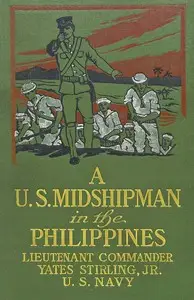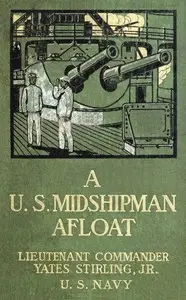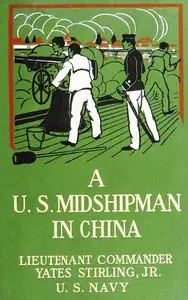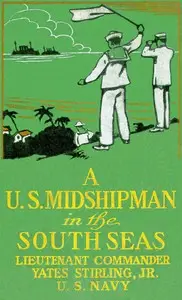"A United States Midshipman in Japan" by Yates Stirling is a historical adventure novel written in the early 20th century. The story follows two young American naval officers, Midshipmen Philip Perry and Sydney Monroe, as they explore the complexities of their journey to Japan against a backdrop of diplomatic tension. The narrative unfolds with action, intrigue, and camaraderie, as these midshipmen navigate personal relationships and international affairs. The opening portion of the book introduces the young midshipmen during their arrival in Yokohama, where they are greeted with ceremony and enthusiasm by the Japanese, highlighting the cultural contrasts between the two nations. During a train journey to Tokyo, Philip overhears a conversation hinting at a conspiracy that could drag both countries into conflict, setting the stage for the unfolding drama. As they reach their destination, the midshipmen face an array of societal and diplomatic challenges, indicating a precarious journey filled with potential conflict, exploration, and interwoven destinies amidst misunderstandings between the nations. (This is an automatically generated summary.)
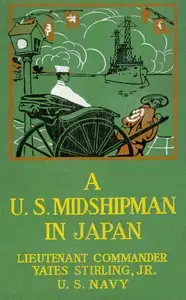
A United States Midshipman in Japan
By Yates Stirling
"A United States Midshipman in Japan" by Yates Stirling is a historical adventure novel written in the early 20th century. The story follows two young...
Yates Stirling Jr. was a decorated and controversial rear admiral in the United States Navy whose 44-year career spanned from several years before the Spanish–American War to the mid-1930s. He was awarded the Navy Cross and French Legion of Honor for distinguished service during World War I. The elder son of Rear Admiral Yates Stirling, he was an outspoken advocate of American sea power as a strong deterrent to war and to protect and promote international commerce. During Stirling's naval career and following retirement, he was a frequent lecturer, newspaper columnist and author of numerous books and articles, including his memoirs, Sea Duty: The Memoirs of a Fighting Admiral, published in 1939. Describing himself, Stirling wrote, "All my life I have been called a stormy petrel. I have never hesitated to use the pen to reveal what I considered should be brought to public attention, usually within the Navy, but often to a wider public. I seem to see some benefits that have come through those efforts. I have always believed that a naval man is disloyal to his country if he does not reveal acts that are doing harm to his service and show, if he can, how to remedy the fault. An efficient Navy cannot be run with 'yes men' only."


